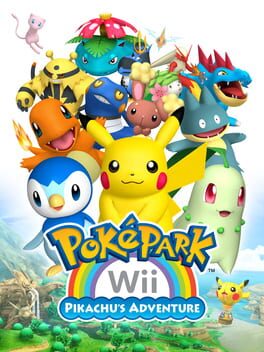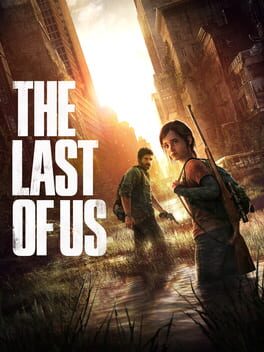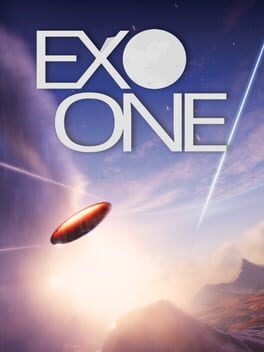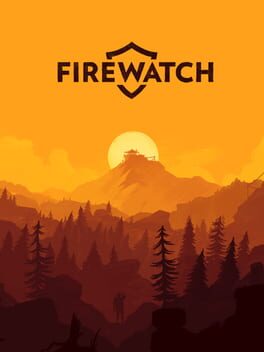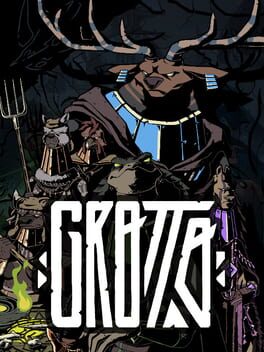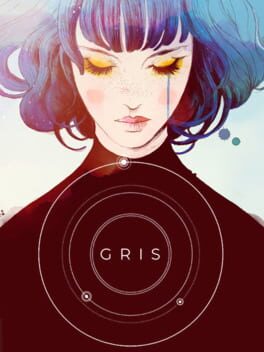Storm9691
1993
Top 5 reasons why DOOM still rocks in 2024 (by a tenderfoot born in 2000):
1. The amount of testosterone per pixel. If you want to play in lower difficulty levels you’ll have to acknowledge your lack of masculinity and pick the “I’m too young to die” option. I find it endearing.
2. The shotgun.
3. The main character’s walk cycle. It’s so exaggerated, I love how much it moves up and down, right and left, and how the weapon also swings around with each step you take. It makes you feel like a fucking berserker.
4. The action is great, but there are also some amazing horror set pieces. Lights will suddenly switch off and you’ll have to survive a shooting in the dark by trusting your instincts and the fleeting light of each shot you fire.
5. Finally, a horde of demons coming from Mars is too cool and iconic to be true and we should point out more often just how well this thing knows its own aesthetic.
1. The amount of testosterone per pixel. If you want to play in lower difficulty levels you’ll have to acknowledge your lack of masculinity and pick the “I’m too young to die” option. I find it endearing.
2. The shotgun.
3. The main character’s walk cycle. It’s so exaggerated, I love how much it moves up and down, right and left, and how the weapon also swings around with each step you take. It makes you feel like a fucking berserker.
4. The action is great, but there are also some amazing horror set pieces. Lights will suddenly switch off and you’ll have to survive a shooting in the dark by trusting your instincts and the fleeting light of each shot you fire.
5. Finally, a horde of demons coming from Mars is too cool and iconic to be true and we should point out more often just how well this thing knows its own aesthetic.
1999
So the other day I texted my rock-loving friend with a link to "Promise", from the Silent Hill 2 soundtrack, and I went "Dude I kinda wanna know your take on this 'cause this franchise is full of bangers". And his reply was like "I totally dig this shit but I can't picture it in Silent Hill. Isn't that franchise like an atmospheric kind of thing that hipsters usually like?".
I get the feeling that there's a phenomenon happening with a lot of media where a particular work permeates into a community or even pop culture but very few people have actually experienced it first-hand, so an idea of what the work is supposed to be gains an entity of its own and suddenly people get surprised that Metal Gear Solid is a James Bond parody. I think this totally happened with Silent Hill, which often exists not as itself but as "Thesmart psychological alternative to survival horror in a world where Resident Evil was the reference".
I played Silent Hill for the first time around two years ago (that would be 2022), swapping the controller every 20 minutes with a friend nerd enough to have bought an original PSX copy of the game without me inflicting any kind of terrible torture upon him. And I would like to encourage people to dive into this game, experiencing it first-hand… because what we found was nothing as what we imagined. The truth is, even if its supreme art direction is what comes to mind when reading Silent HIll, there's no end to how dumb this game can get!
I say this in the least condescending way possible. Sometimes people seem to have forgotten that in this franchise you resolve puzzles in abandoned schools by plugging rubber balls into holes or throwing cans into ventilation ducts. Not to mention finding stupid hints at how to defeat a giant lizard in the conveniently only readable book of the whole building. At its core, the game doesn't draw away as far as I thought from other genre games of its time. Nonetheless, it's totally fearless when it comes to mixing arrythmic noises with rock ballads, or creating cutscenes around the weirdest dialogue and pauses you'll ever see in a mainstream videogame just because someone on the team liked David Lynch.
Silent Hill is so punk and imperfect and arbitrary and reckless and I LOVE IT! Maybe so much because the Internet had built such a restrictive idea of what this game was in my mind, and actually playing it felt like discovering some kind of huge secret that an evil corporation had been hiding in plain sight for decades. Face these classics with an open mind, because they are usually a lot more fun than what some of its most gatekeeping fanbase suggests.
I get the feeling that there's a phenomenon happening with a lot of media where a particular work permeates into a community or even pop culture but very few people have actually experienced it first-hand, so an idea of what the work is supposed to be gains an entity of its own and suddenly people get surprised that Metal Gear Solid is a James Bond parody. I think this totally happened with Silent Hill, which often exists not as itself but as "The
I played Silent Hill for the first time around two years ago (that would be 2022), swapping the controller every 20 minutes with a friend nerd enough to have bought an original PSX copy of the game without me inflicting any kind of terrible torture upon him. And I would like to encourage people to dive into this game, experiencing it first-hand… because what we found was nothing as what we imagined. The truth is, even if its supreme art direction is what comes to mind when reading Silent HIll, there's no end to how dumb this game can get!
I say this in the least condescending way possible. Sometimes people seem to have forgotten that in this franchise you resolve puzzles in abandoned schools by plugging rubber balls into holes or throwing cans into ventilation ducts. Not to mention finding stupid hints at how to defeat a giant lizard in the conveniently only readable book of the whole building. At its core, the game doesn't draw away as far as I thought from other genre games of its time. Nonetheless, it's totally fearless when it comes to mixing arrythmic noises with rock ballads, or creating cutscenes around the weirdest dialogue and pauses you'll ever see in a mainstream videogame just because someone on the team liked David Lynch.
Silent Hill is so punk and imperfect and arbitrary and reckless and I LOVE IT! Maybe so much because the Internet had built such a restrictive idea of what this game was in my mind, and actually playing it felt like discovering some kind of huge secret that an evil corporation had been hiding in plain sight for decades. Face these classics with an open mind, because they are usually a lot more fun than what some of its most gatekeeping fanbase suggests.
It may sound arbitrary, but I think going through Flower Zone and Sky Pavilion as a child, with all those poorly textured but legitimately suggestive Wii ruins, heavily influenced my aesthetical preferences in videogames forever.
It's fair to point out I would rather spend 30 more hours in Scarlett/Purple before going back to this thing, but I also earned 100% of it when I was a kid so it's probably my fault for becoming a boring idiot as I grew-up and forgetting just how epic controlling Pikachu actually is.
It's fair to point out I would rather spend 30 more hours in Scarlett/Purple before going back to this thing, but I also earned 100% of it when I was a kid so it's probably my fault for becoming a boring idiot as I grew-up and forgetting just how epic controlling Pikachu actually is.
2013
I played The Last of Us a few years ago. At first, I was skeptical, anticipating your typical parent-child story with a superfluously melodramatic ending, unfairly extolled by a gaming community that saw BioShock Infinite as the pinnacle of scriptwriting back in the early 2010s. That younger version of me was too doubting, for the zombie-themed triple-A that defined a generation does a great job at blending blockbuster codes with very nuanced sensibilities -a better one, in my opinion, than some of its most notable successors, such as 2018's God of War.
As in every action-adventure 2013 game, you can expect some undesirables broken bridges and pace-messing shootings, specially in the first half. But also a ton of jaw-dropping playable sequences, only possible thanks to Naughty Dog's massive budgets, that strike way harder than its HBO's adaptation's aesthetically indier approach. It's an ambitious, original work, accesible for a big audience, and the kind of project more superproductions should aim to become.
As in every action-adventure 2013 game, you can expect some undesirables broken bridges and pace-messing shootings, specially in the first half. But also a ton of jaw-dropping playable sequences, only possible thanks to Naughty Dog's massive budgets, that strike way harder than its HBO's adaptation's aesthetically indier approach. It's an ambitious, original work, accesible for a big audience, and the kind of project more superproductions should aim to become.
2021
Two buttons is everything Exo One needs to create some of the most physically intuitive movement I've played in recent years. Following Miyamoto's famous empty room anecdote, our sheer existence as this shape-shifting ball is extremely fun and stimulating as long as we have a dune to surf.
I love it when progress in a game's curve is based on my understanding of its gamefeel alone, and I loved learning to break the sound barrier with my tiny avatar so badly... that I was a little underwhelmed when I reached the final level without that many opportunities to play around in even crazier grounds. From my point of view, it's a diamond in the rough, really recommendable as it stands, but with the potential of achieving excellency if the team implemented its fantastic kinestesia into some thought through level design that allowed for more complex ways of expression.
I love it when progress in a game's curve is based on my understanding of its gamefeel alone, and I loved learning to break the sound barrier with my tiny avatar so badly... that I was a little underwhelmed when I reached the final level without that many opportunities to play around in even crazier grounds. From my point of view, it's a diamond in the rough, really recommendable as it stands, but with the potential of achieving excellency if the team implemented its fantastic kinestesia into some thought through level design that allowed for more complex ways of expression.
2016
I was a bit disappointed when I realized that Firewatch was actually a heavily linear, action-driven thriller. However, those first couple of hours where traveling the land with nothing more than a map you would check without any extradiegetical menus and some basic climbing equipment was the core of the game felt so insanely tactile they made the whole experience worth it.
Those initial moments really allowed me to put myself into this middle-aged american man's boots as I roleplayed every answer he would give through his old walkie-talkie, the very act of holding down my controller's button while I roamed the dialogue options unavoidably dragging me into the game's world. And then... well, then it becomes a decent enough walking simulator.
Those initial moments really allowed me to put myself into this middle-aged american man's boots as I roleplayed every answer he would give through his old walkie-talkie, the very act of holding down my controller's button while I roamed the dialogue options unavoidably dragging me into the game's world. And then... well, then it becomes a decent enough walking simulator.
2021
One of the few videogames I know that represent communication as an unpredictably realistic process, where subjective emotionality related to specific signs decides the flow of the conversation. Sometimes you won't be able to properly convey your thoughts or feelings to the many characters that ask for your advice throughout the game's 5-hours run. But that's how coding and decoding's chaotic give-and-take works in real life.
I'd love to see an expanded take on these ideas with a more nuanced use of mechanics in order to represent language's unending peculiarities, but just as it is, Grotto is nevertheless a very rich experience.
I'd love to see an expanded take on these ideas with a more nuanced use of mechanics in order to represent language's unending peculiarities, but just as it is, Grotto is nevertheless a very rich experience.
2018
Worth playing for its stunning visuals, but I'm drived off by its understanding of overcoming depression as a ceaseless thrust towards a brighter future with not a single relapse into darkness.
I get this is a very subjective matter, but a peaceful, healing platform game is the last thing I want to play when I feel my existence's only purpose is going through as much suffering as I can endure.
I get this is a very subjective matter, but a peaceful, healing platform game is the last thing I want to play when I feel my existence's only purpose is going through as much suffering as I can endure.


